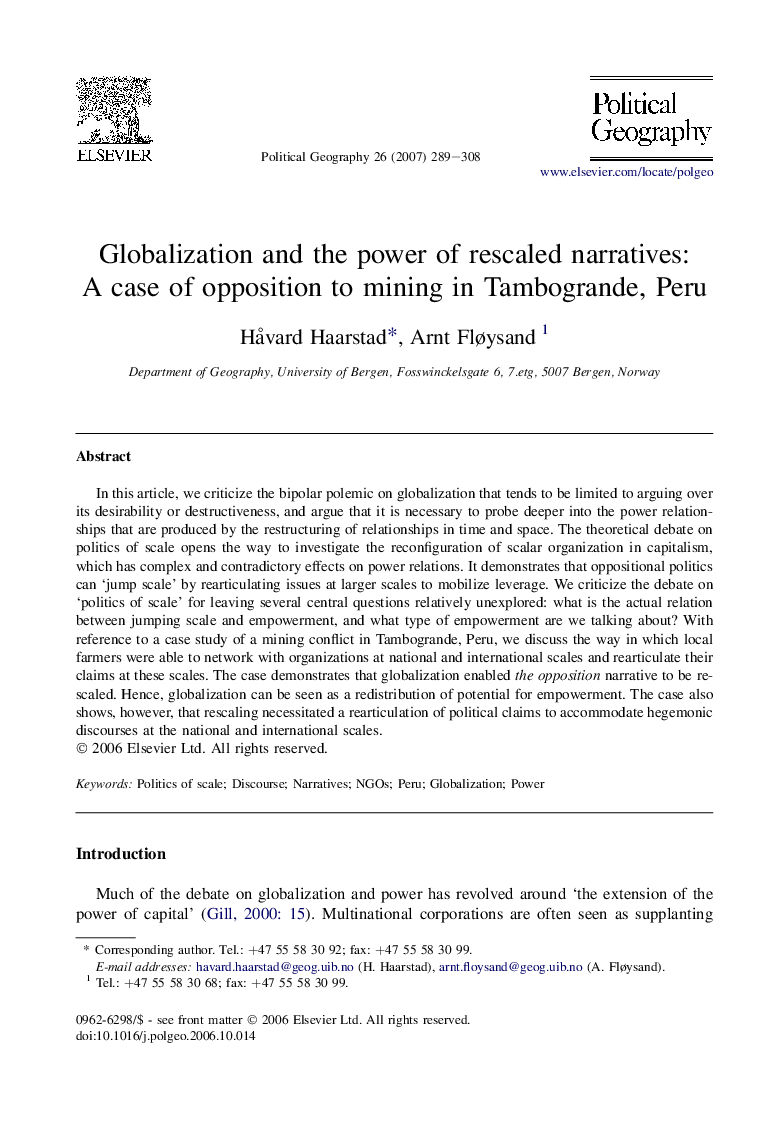| Article ID | Journal | Published Year | Pages | File Type |
|---|---|---|---|---|
| 1062544 | Political Geography | 2007 | 20 Pages |
In this article, we criticize the bipolar polemic on globalization that tends to be limited to arguing over its desirability or destructiveness, and argue that it is necessary to probe deeper into the power relationships that are produced by the restructuring of relationships in time and space. The theoretical debate on politics of scale opens the way to investigate the reconfiguration of scalar organization in capitalism, which has complex and contradictory effects on power relations. It demonstrates that oppositional politics can ‘jump scale’ by rearticulating issues at larger scales to mobilize leverage. We criticize the debate on ‘politics of scale’ for leaving several central questions relatively unexplored: what is the actual relation between jumping scale and empowerment, and what type of empowerment are we talking about? With reference to a case study of a mining conflict in Tambogrande, Peru, we discuss the way in which local farmers were able to network with organizations at national and international scales and rearticulate their claims at these scales. The case demonstrates that globalization enabled the opposition narrative to be rescaled. Hence, globalization can be seen as a redistribution of potential for empowerment. The case also shows, however, that rescaling necessitated a rearticulation of political claims to accommodate hegemonic discourses at the national and international scales.
